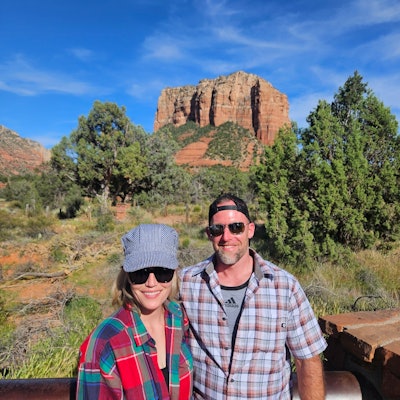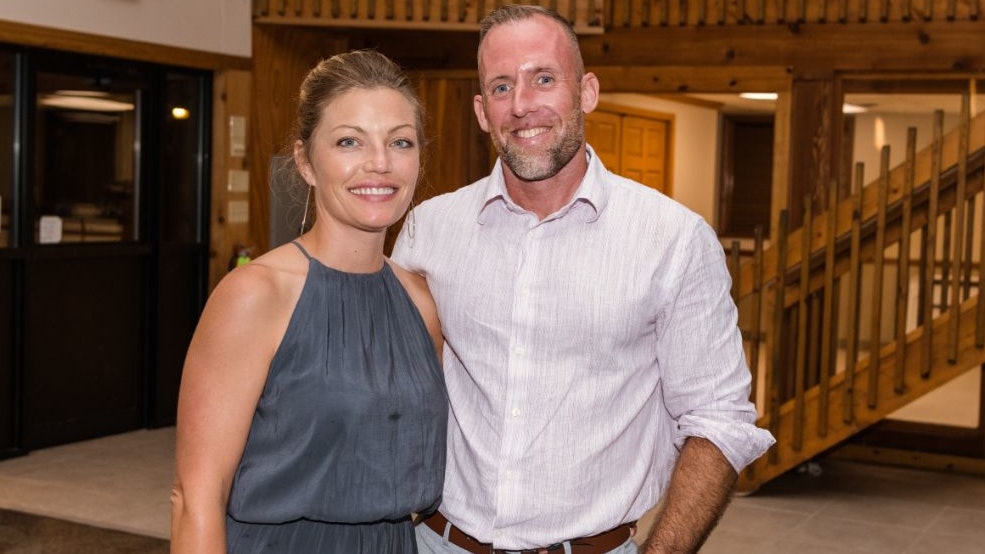Recovery is not just about surviving—it’s about transforming and reclaiming life. For Brian Sutton, that transformation has been profound. His story is a testament to the power of resilience, the promise of recovery, and the importance of community support. From battling polysubstance addiction and experiencing multiple overdoses to rebuilding his life and business, Sutton has emerged as a leader and advocate for those still struggling.
Sutton grew up in a loving and comfortable home, yet inside, he felt an unshakable void. He describes it as a “lack of calm, a constant sense of worry that I was not enough, that I did not fit in—a space full of negative self-judgment and the constant feeling that something in me was ‘wrong’ or ‘missing.’” Substances, he says, took away those inhibitions and gave him a false sense of connection with the world. But that illusion came at a steep cost, pulling him into years of addiction and eventual incarceration. His journey included multiple overdoses, many of which required naloxone for revival. “I overdosed countless times,” he recalls. “I estimate I was revived using Narcan or another chemical reversal method by first responders about 25 to 30 times over 15 years.”
For families and friends, understanding harm reduction is critical. “Naloxone is an important piece in reducing stigma and saving lives,” Sutton says. “Addiction needs to be normalized because it is a reality for so many people. Keeping someone alive gives them the chance to make the change for themselves. Street drugs today are more dangerous than ever, and naloxone can be the difference between life and death.”
“All of the old mindset, lifestyle, trauma, and environment need to be torn down and rebuilt in addiction recovery—just like with a condemned or dilapidated building. It also takes time, patience, and a lot of energy.”
-Brian Sutton
Rebuilding Through Work & Purpose
On April 10, 2025, Sutton will celebrate seven years in recovery. His journey has been one of perseverance, self-discovery, and continuous learning. While the path was never easy, each milestone reinforced his commitment to staying clean and making a difference. As a skilled craftsperson in the construction industry, Sutton sees parallels between his work in remodeling and his recovery journey. “In a way, all of the old mindset, lifestyle, trauma, and environment need to be torn down and rebuilt in addiction recovery—just like with a condemned or dilapidated building,” he explains. “It also takes time, patience, and a lot of energy.”
One of the aspects Sutton enjoys most about his work is the autonomy it provides. “Being an entrepreneur has given me the freedom to take time when I need it,” he says. “But I’m still learning how to balance it.”
Sutton attributes his recovery success to several key moments:
- Reaching a point of desperation where he was willing to change,
- Seeking help and listening with an open mind during inpatient rehab,
- Shifting his mindset from focusing on his struggles to how he could contribute to the world, and
- Understanding that his thinking was part of the problem and committing to lifelong growth.
His dedication to self-improvement has led to several incredible achievements, including returning to college and earning his degree, completing a Master’s in Social Work (2024) and becoming a Certified Personal Trainer (2025), serving as President of his university’s Collegiate Recovery Program (2022–2024), being selected for SAFE Project’s Collegiate Recovery Leadership Academy (CRLA), and expanding his construction business while employing two other individuals in recovery.
“Brian brings new meaning to the idea of ‘nothing about us without us,’” says Sydney Cheifetz, Deputy Director of SAFE Campuses, reflecting on Sutton’s impact in the CRLA program. “Through his lived experience of being impacted by addiction and overdose, he works to bring awareness while supporting individuals in or seeking recovery. It was a privilege to watch Brian use his voice and advocate to help others in his community during his fellowship year.”
 Brian Sutton
Brian Sutton
Understanding & Managing the Void
One of the most profound gifts of recovery has been restoring his relationships with his family. “It is surreal to witness how our trust has grown,” he shares. “Family members who once wouldn’t talk to me now seek my insight and even financial help.” In addition to reconnecting with his family, Brian has also found love. “For so long, substances were my greatest love, but today, I’m grateful to share my life with someone who exceeds every conception I ever had of what a partner could be. She reshapes my perspective on love daily.”
While recovery has given Brian the tools to manage his struggles, he acknowledges that the void he once tried to fill with substances will always exist. “I have no control over it, but I do have control over my reactions and behaviors,” he explains. “The void will always be there, but today, I can choose a selfless, loving, and accepting path. I fall short sometimes, but I take responsibility and surround myself with people who hold me accountable.”
“People will change on their own terms, not on our schedules. People in addiction need love, connection, and self-worth.”
—Brian Sutton
His journey is proof that change is possible for anyone at any time. “There’s a lot of focus on the negative in the world today,” he says. “But when I dwell on that, it disconnects me from the beauty around me and the energy of the universe. Recovery has helped me find the path of least resistance, where the most positive outcomes lie.”
For those with a loved one struggling with addiction, Sutton offers this advice: “The one constant in life is change. But people will change on their own terms, not on our schedules. People in addiction need love, connection, and self-worth. These are difficult to provide without enabling, but one thing is certain: ostracization and disconnection do not work.”
His message is one of hope, resilience, and the power of second chances.
“Recovery isn’t just about not using—it’s about rebuilding a life that’s worth living. And I can say with confidence: my life today is worth living,” he says.
Sutton’s story is an inspiration, not just for those in recovery but for anyone who believes in the possibility of transformation. From addiction to advocacy, from incarceration to education, and from near death to a life filled with purpose, his journey reminds us all that hope is always within reach.
View the original article and our Inspiration here


Leave a Reply